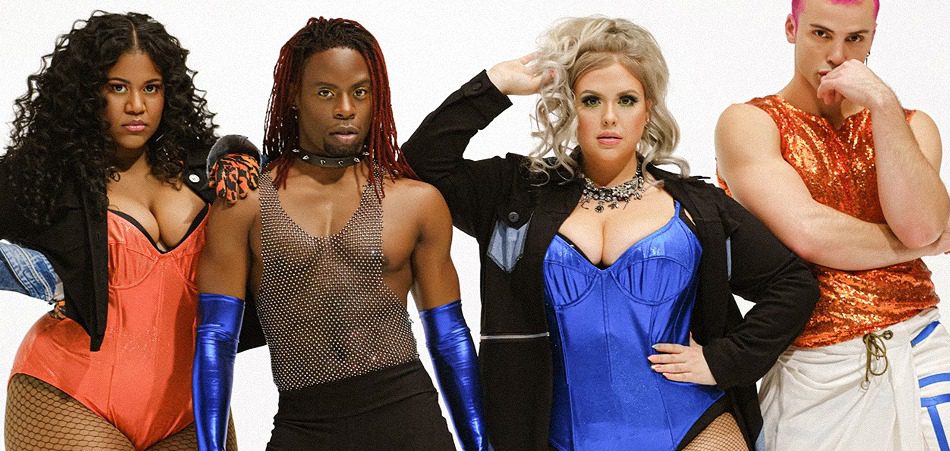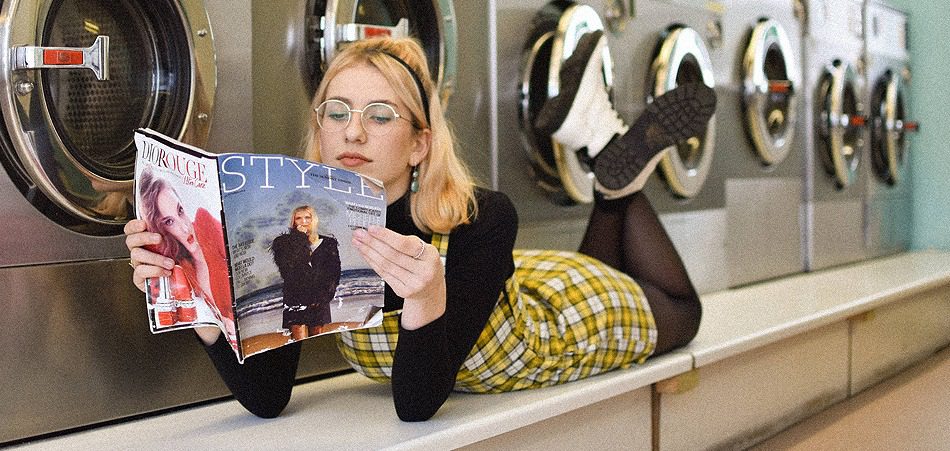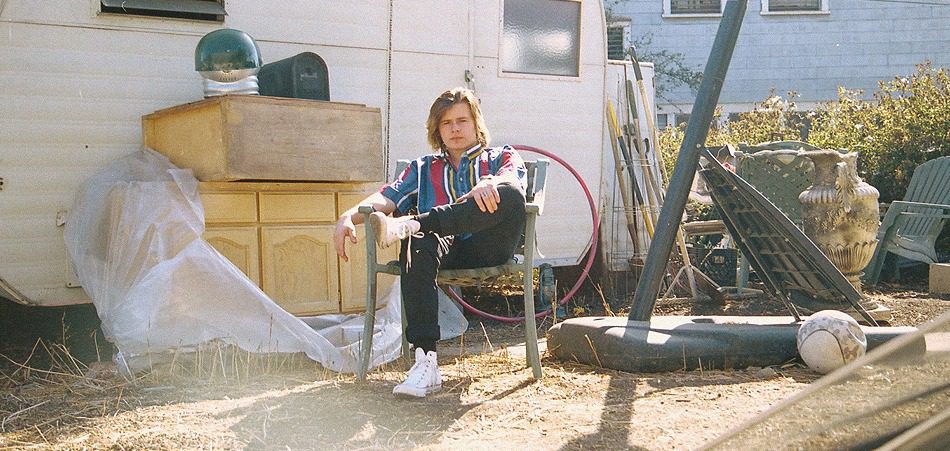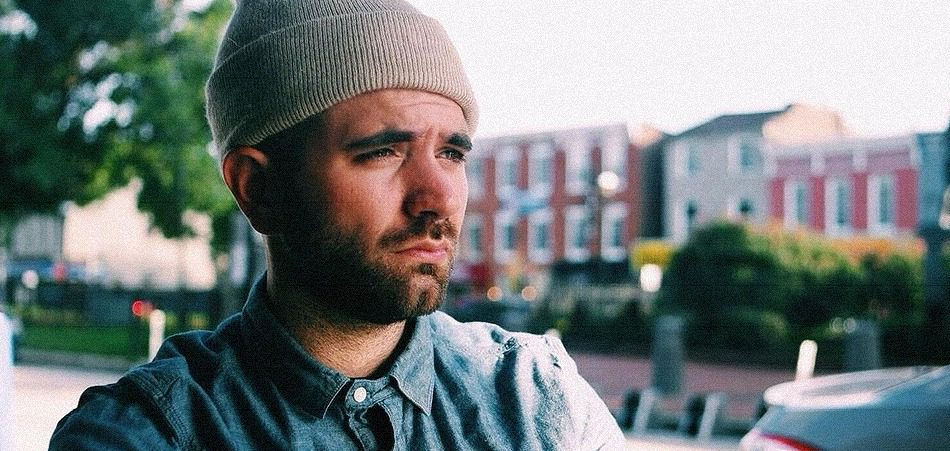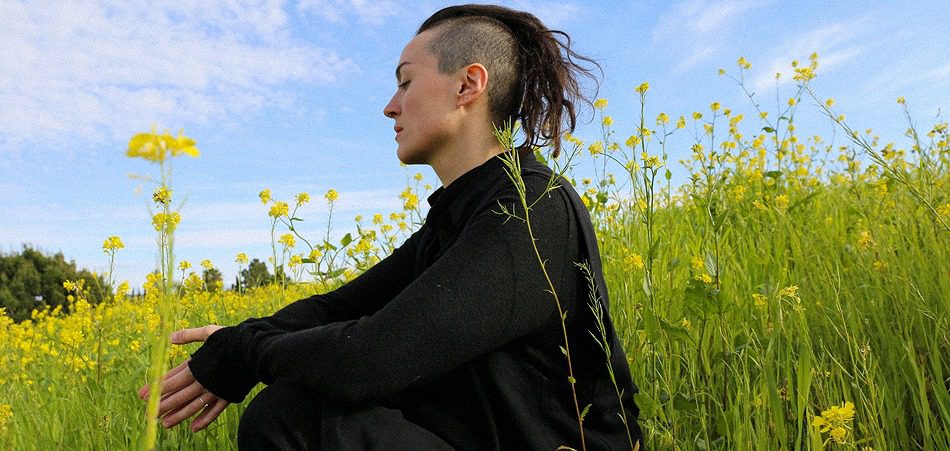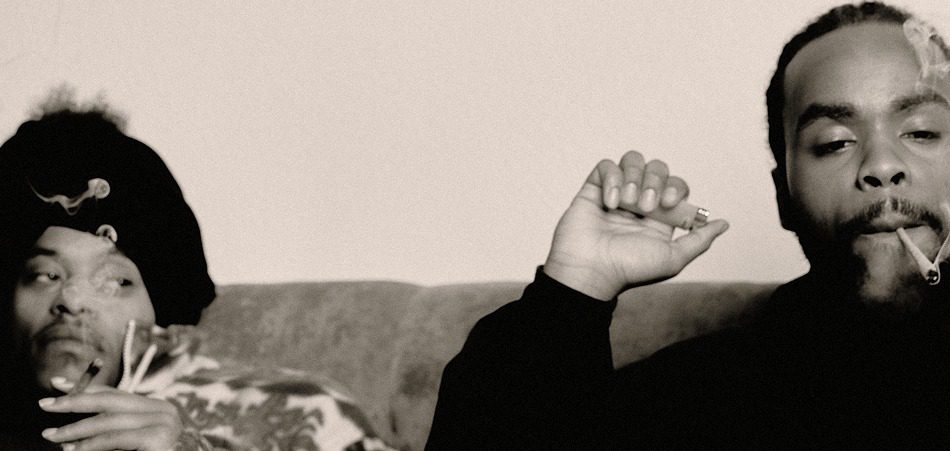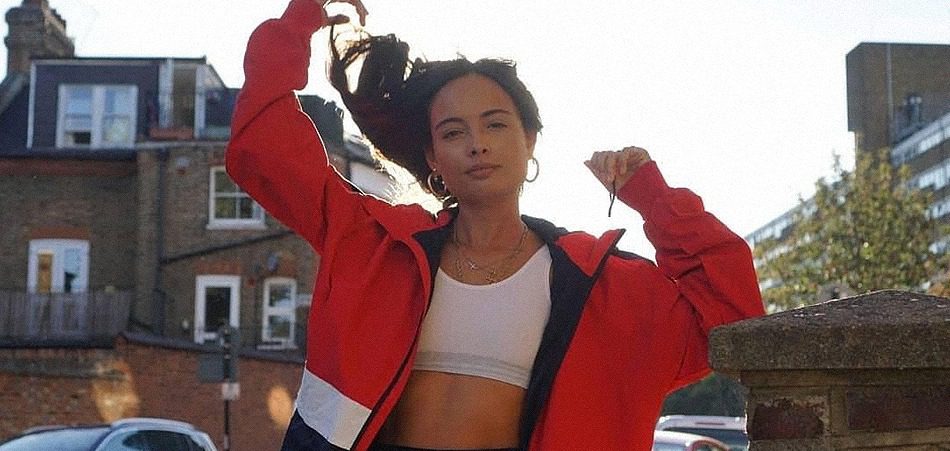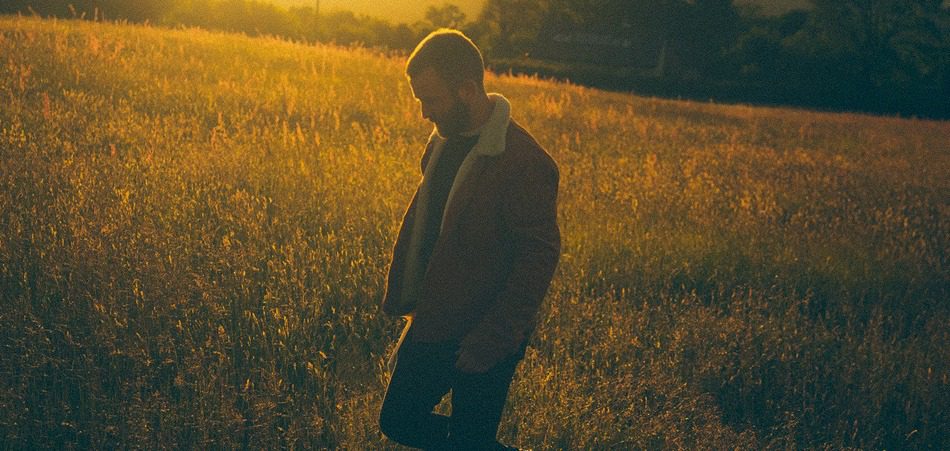Independence is a trait often coveted, but once achieved, can feel like a weight that you can never quite get used to lifting. For Canadian pop group rIVerse, the weight is shared by four fierce friends—Khadija, Dizz, Monroe, and Zak. After meeting over ten years ago during an audition for a Toronto stage production of High School Musical 2, the four openly queer artists formed a supergroup of their own ’90s pop star dreams, designed and directed by their leader, Dizz. “I had been putting pop groups together since the age of 14. And I’ve always been a fan of groups growing up in the ’90s, like N’Sync and Destiny’s Child, Backstreet Boys, Spice Girls, and I wanted to bring something new to the industry.” The four gather around a screen in their Toronto condo on a dark Friday evening for our call, calm and poised, with bouts of excitement upon sharing their story on the heels of their 2020 release, Poison IV, inevitably present.
“The beauty of rIVerse is that we are four very different people. And we have four very different musical tastes,” Monroe, the self-proclaimed blonde bombshell of the group, shares the mechanics that make it all work. “So we have love for rock ‘n’ roll, we have love for soul, R&B, we have love for pop music, we have love for so many different types of influences of music. So when you combine those together, you’re creating a beautiful harmony and a story. So I think just grabbing pieces from each of us and intertwining them together is the music that you’re going to get from rIVerse. And I think that’s a really beautiful thing.” Though rock and indie groups—even hip-hop collectives—are still prevalent in today’s musical landscape, the pop group seems to have been largely forgotten, or at least mildly mourned by twenty-something-year-olds who still remember where they were when they received the news that One Direction has officially split. But rIVerse can’t be easily compared to the modern pop groups that we’ve seen garner attention in the past decade. True to their earlier roots, they are more akin to the original success stories of the late ’90s with coordinated styles, meticulously laboured choreography, and a sugary pop production that often delves into the house influences of the club-dominant early aughts (“Clapback SZN”). And while their nostalgic appeal is largely inoffensive, they still find themselves ruffling feathers, struggling to find the support they need in their own home country.
“There is really no infrastructure here to support Canadian music that’s in the pop genre, R&B genre, hip-hop genre,” Dizz opens up, not quite bitter yet not at all impressed with the hurdles they still find themselves facing. “Yes, we have the Drakes and the Weeknds and the Biebers, and the Jesse Reyes and whatnot, but they all have either been co-signed by an American or somebody not from here, or they’ve left. And that’s pretty much been the case for any American, or any Canadian artists that you can think of that really made it big. It wasn’t Canada that brought them to that place, it was them either leaving the city, or somebody from America or from the UK, or whatever the case may be, really kind of stepping into raising their brand and raising their profile. Which is sad, because you would think that at this point, with all the success that we’ve seen in terms of these major artists, that Canada would start to maybe invest or figure out how to curate or support its artists more, but it hasn’t happened just yet.” Zak quickly adds, “Canadians are very polite, and we’ve often made the reference to that in that rIVerse is a new concept; just diverse in these ways that people are talking about now, but to see it come together into one, you know, from body positivity to LGBTQ, black man, it’s a lot for a polite kind of framework, right? It’s a lot to digest.” Unsurprisingly, the group remains to be largely independent, managing everything from their music to their shows to their brand on their own. But with that independence, comes a sense of familiarity—a knowledge that these four artists are essentially just like us—they get excited about their favourite artists, they watch anticipated music video releases, and they hang out as friends on lonely, isolated pandemic-driven nights. And it’s this independence that humanizes them, takes the otherworldly untouchable pop group that we used to obsess over and puts it down on earth with the rest of us.
“I think with the music industry, for so many years, there has been a mold that has been set up for the public to ingest,” Khadija suggests when asked about their influence on their fans. “And I think, in this new day and age, these artists that are coming out— Billie Eilish, we have Lizzo we have Lil NAS X— we have so many different artists that are breaking these barriers. And that’s what I feel like the people are attracted to, they are attracted to the people that look like them. And that’s what I want to invest in.” Of course, beyond just being relatable to the general population, rIVerse’s largest appeal is to the marginalized group. As a multi-racial, queer, and body-positive group, they openly sing about their own experiences coming out (“Angel Boy”), whilst condemning the racial injustices they see in the world (“Stand Up”). But their largest influence isn’t found in a telling lyric, it’s in the simple fact that they exist at all. “Because we are so different, we bring so much diversity, there literally isn’t a mold set for us. So what do we do, we create our own lanes. And while we create our own lanes, we have these people that come to us in our DMs, in our shows, and they come up to us crying literally because we are the reflection of themselves. We are the same people that they are every day except we are just living our dreams and living our truth and doing it on stage. And I think that is so beautiful. And I think that’s why these types of artists are winning in today’s industry. And I think that’s why the industry is shifting so, so majorly.”
Despite the weight they carry as beacons of hope for the underrepresented, rIVerse doesn’t let that responsibility burden them. On the contrary, their work is often uplifting, light, and focused more on the production value than the shock value. Their visual for the Poison IV single, “BaeBeeBoo,” expertly shares the spotlight between all four, teetering somewhere between a Madonna “Vogue” video and the Taylor Swift “Look What You Made Me Do” era.
rIVerse recognizes that any artist’s success story is rooted in their package. To reach beyond your own voice or hit song, you must also lure fans in with your brand, the story you are trying to tell, the energy of a live show you’re able to produce, the excitement of donning your merch. With today’s shifting landscape of digital releases, social media exclusives, and viral TikTok videos, that all tends to go by the wayside, lost in an all-consuming wave of overstimulation. But Dizz still remembers when the full package used to be mandatory. “We are very aware that in order to take steps forward, in order to advance, you have to look back, you have to look at what came before you. And show it some respect, put some respect on its name. And I always feel like when you do that, you will be able to forge a new path. And so despite the fact that there’s a trend in terms of the Spotify playlist, and there’s not that much investment in the whole package, we follow that path of what we’ve decided to do, stay true to what excited us growing up about music: opening that thin plastic wrap on that CD and opening that CD, right, opening that pamphlet open, and whether it was a poster or a booklet, reading the song credits, and who says what, who did background vocals, that was exciting, it was an experience. And so for us, we want to bring back the experience in whatever way that we can. Because we feel that it’s going to, in some ways, put us in our own lane, and not just following the kind of method of operation that’s kind of more at the forefront right now. But I really do believe that things always go full circle, we always come back around. And I feel like even just recently with vinyls, vinyl records having the highest number of sales recently in the history of vinyl sales, that’s a sign to me that people are craving that experience again. And so I’m proud that rIVerse is doing it the way that we’re doing it. And I feel like we will get back to that place where people are trying to get that experience, the full package experience.”
Currently, rIVerse is preparing for their halted Poison IV tour, choreographing the dance numbers, and planning the most “fire show” they could possibly put on. While the pandemic has not allowed them to set any concrete dates yet, they are excited, they are ready, and most importantly, they are hungry for the love and support only a crowd of screaming, crying, and dancing fans could give. Follow along on their journey by checking out the links below.
Connect with rIVerse: Instagram|Twitter|Facebook|YouTube|Spotify


